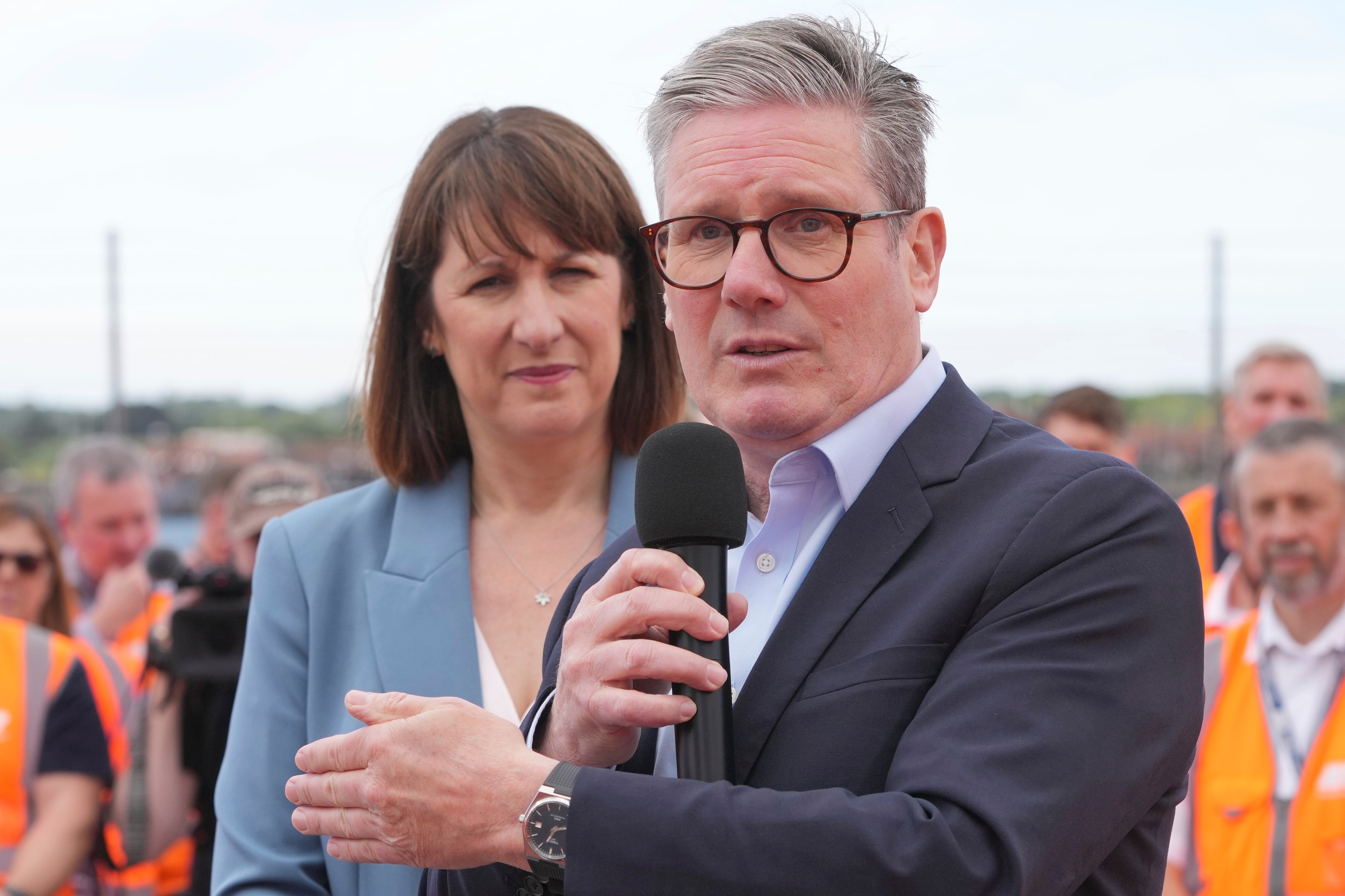Keir Starmer and Rachel Reeves face the first big test of their relationship
The prime minister and chancellor face growing unhappiness from Labour MPs – and voters – over the decision to cut winter fuel payments, writes John Rentoul


Most Labour MPs were “OK with it”, I was told, when Rachel Reeves, the chancellor, announced she was cutting the winter fuel payment to pensioners. They accepted the argument, put to them in private meetings by Darren Jones, Reeves’s deputy as chief secretary to the Treasury, that tough choices had to be made and the most vulnerable would be protected.
Now they are not so sure. New MPs in particular have been shocked by the volume of complaints from their constituents. The unfairness of taking the payment away from pensioners who are just above the eligibility level for pension credit, and therefore keeping the winter fuel payment, has struck home. Millions of people who have done the right thing and saved for their retirement, but who are still poor, are being penalised.
When MPs return to the Commons on Monday after the summer recess, this is going to spell trouble for the government. Not that there will be a vote on the change. The government has already laid the order before parliament, using the “negative procedure” for secondary legislation, which means that it is already law.
It can be annulled if the Commons votes against it before 16 September, but – a catch that Joseph Heller would have admired, this – there will be a vote only if the government allows parliamentary time for it. Which it will not.
In fact, that suits those Labour MPs who are unhappy about the cut. If there were a vote, many of them would feel that they should vote against the government, but they saw what happened in July. Seven members of the Socialist Campaign Group, including John McDonnell, the former shadow chancellor, voted against the two-child limit on benefits in the King’s Speech and were suspended as Labour MPs. This has had a salutary effect on their former comrades, who are well aware that the seven may never be allowed back.
So Labour MPs will oppose the measure by lobbying Reeves and Keir Starmer in private, making the argument not so much from compassion but from hard political reality: that impoverishing pensioners just above the pension credit level will lose the party votes.
They realise that the chancellor is unlikely to cancel the cut altogether, so they are focusing their efforts on persuading her to do something in the Budget on 30 October to soften the blow. Several ideas are being canvassed, from a new, more generous warm homes discount scheme to extending the winter fuel payment to pensioners living in homes in lower council tax bands.
The stage is set, therefore, for a big early test of the government. And when we say government, we mean the duumvirate at the heart of it: the partnership between the chancellor and the prime minister.
As Andrew Grice pointed out a few days ago, “Starmer’s instincts are to the left of Reeves,” and there are some signs that he is more willing to consider compromise – both on the two-child limit and the winter fuel payment – than she is. Despite her early support for Ed Miliband when she was a new MP in 2010, she grew a reputation as a tough pragmatist. Her image as a strong chancellor depends on her hard line on fiscal responsibility, so any partial U-turn on winter fuel would dent it. But as many chancellors have discovered, including Gordon Brown and George Osborne, it is sometimes better to retreat early than to try to hold a line that cannot be held.
So the question is whether she can hold the line, and what Starmer thinks about it. The winter fuel issue is not just a problem with the party; the cut is unpopular with the general public (unlike the two-child limit, which the party opposes but the public tends to support).
Reeves’s critics say she would have put herself in a better position with both audiences if she had announced something that would clobber the rich first. Her retort is that she announced that the VAT on school fees would come in earlier than expected, in January, during the school year. But that tax on the better off had been heralded in the manifesto – it was only the timing that was a surprise.
Every chancellor wrestles with similar dilemmas. Should she find some way of helping those just above the level of the means test, reducing the £1.5bn-a-year saving but shutting down a winter of stories of pensioners with small private pensions being forced to choose between eating and heating? She can cover her retreat by pretending she was always going to do something in the Budget, but it will weaken her in the eyes of the markets – and in future spending negotiations with departments.
Or should she hold the line, and insist that there are more hard choices to come? In the next two months before the Budget, everything depends on whether she and Starmer decide – jointly – to bend before the storm of protest, or to tough it out.

Join our commenting forum
Join thought-provoking conversations, follow other Independent readers and see their replies
Comments